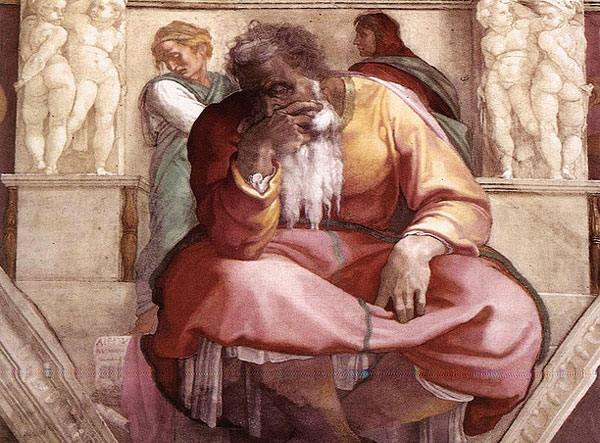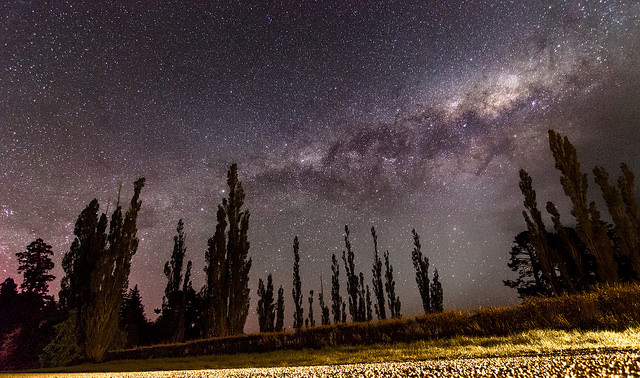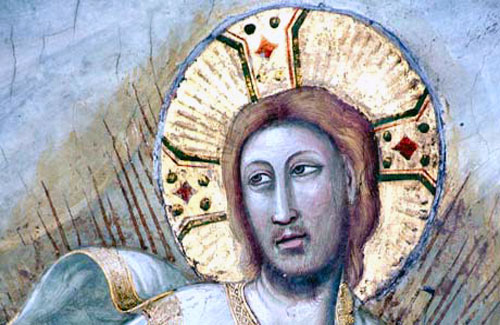The word of the LORD came to me, saying, “Before I formed you in the womb I knew you, before you were born I set you apart; I appointed you as a prophet to the nations.”
“Alas, Sovereign LORD,” I said, “I do not know how to speak; I am too young.”
But the LORD said to me, “Do not say, ‘I am too young.’ You must go to everyone I send you to and say whatever I command you. Do not be afraid of them, for I am with you and will rescue you,” declares the LORD.
Then the LORD reached out his hand and touched my mouth and said to me, “I have put my words in your mouth. See, today I appoint you over nations and kingdoms to uproot and tear down, to destroy and overthrow, to build and to plant.” (Jeremiah 1:4-10)
Jeremiah was called of the Lord to be a prophet while yet a young man — “too young,” he protested. Being a prophet is a tricky undertaking, a dangerous occupation with many opportunities to be heavy with fear and in dire need of escape. But the Lord promised, “I am with you and will rescue you.”
The outstretched hand of God touched Jeremiah’s reluctant lips, and now the message that came from Jeremiah’s mouth would be God’s own words, full of divine power and authority. Jeremiah would need that because Jeremiah’s message would not be a welcome one. Neither kings nor kingdoms take kindly to being uprooted, torn down, destroyed or overthrown. But there was much wickedness in the land and many hearts that needed to be changed before God could rebuild and plant again, for God cannot bless anything that does not come from him, that does not originate from his love.
Now jump forward several hundred years. It is a Sabbath and Jesus is standing at the lectern of the synagogue in Nazareth, his hometown. The text is Isaiah 61, about the year of divine favor on the people of Israel, and the day of vengeance on their oppressors. Jesus reads it, leaving off the part about the vengeance, then sits down to teach.
He began by saying to them, “Today this scripture is fulfilled in your hearing.”There is an ambiguity here. Although the NIV says “all spoke well of him,” the underlying Greek text speaks simply of bearing witness, which could be either for or against Jesus. The people were “amazed,” which, again, could be taken in a positive or negative way. It was the “gracious words” Jesus spoke that was at the center of their reaction.
All spoke well of him and were amazed at the gracious words that came from his lips. “Isn’t this Joseph’s son?” they asked. (Luke 4:21-22)
We should think they would have been glad for the graciousness of Jesus’ message, but it was the part he left out that was the object of their disquiet. They were glad to hear about the year of God’s favor on Israel, but they also wanted to hear about the day of God’s vengeance on the Gentiles. And Jesus did not go there. His words left God’s grace open to the Gentiles as well as towards Israel.
So the crowd began to question. “Who is this? Isn’t he the son of Joseph? Isn’t he the carpenter’s son? By what authority does he speak this way?” They would use their imagined familiarity with Jesus against him, to discount his words. But Jesus knew exactly what they were up to.
Jesus said to them, “Surely you will quote this proverb to me: ‘Physician, heal yourself!’ And you will tell me, ‘Do here in your hometown what we have heard that you did in Capernaum.’”Did they need to see miracles before they would accept this hometown son as a true prophet of God? That is not how true prophets work, and that is not how Jesus works. Faith does not come by seeing miracles but by hearing the word of God. The people of Nazareth were not ready to receive Jesus’ words, so they were not ready to believe his miracles.
“Truly I tell you,” he continued, “no prophet is accepted in his hometown. I assure you that there were many widows in Israel in Elijah’s time, when the sky was shut for three and a half years and there was a severe famine throughout the land. Yet Elijah was not sent to any of them, but to a widow in Zarephath in the region of Sidon. And there were many in Israel with leprosy in the time of Elisha the prophet, yet not one of them was cleansed — only Naaman the Syrian.” (Luke 4:23-27)
The reason Jesus’ message was so gracious and open-ended was because God had often showed his mercy to Gentiles. In Elijah’s day, Israel was a faithless generation, unwilling to receive the word of the Lord. When famine came, it was only a pagan widow of Sidon who believed the prophet and received a miraculous provision. The story was much the same in the time of Elisha, and it was only Naaman, a Syrian general, who believed the prophet and was cleansed of leprosy.
These examples would have had a hard bite in Nazareth because Sidon and Syria were especially loathed by the Jews. Yet God showed mercy on these despised ones because they were willing to trust him. The real question, however, was whether the people of Nazareth were willing to trust God even if he intended to be gracious towards the pagans. The answer quickly appeared.
All the people in the synagogue were furious when they heard this. They got up, drove him out of the town, and took him to the brow of the hill on which the town was built, in order to throw him off the cliff. But he walked right through the crowd and went on his way. (Luke 4:28-30)The people were seething. They did not want to hear of a God who would show mercy on their enemies, and they would have no part with a prophet who would teach such things — away with him. The soil of their hearts was hard and unyielding, not good ground for the seed of the kingdom, not yet ready for the building and planting Messiah came to do. So Jesus went on his way, passing quietly through the crowd, whether by miraculous disappearance or the power of his presence. Either way, God was with him and rescued him.









